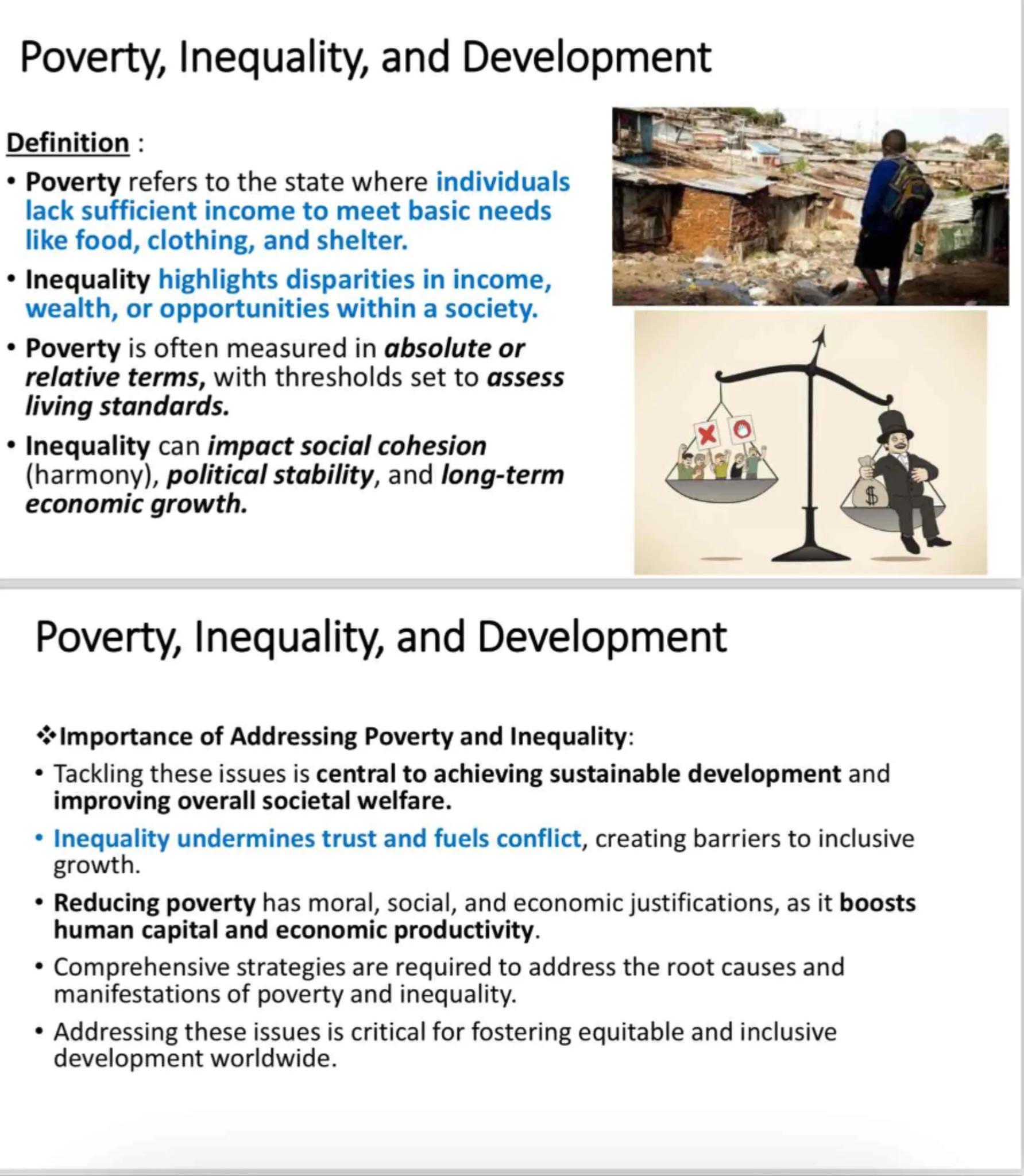
Sia
Poverty, Inequality, and Development
Definition :
- Poverty refers to the state where individuals lack sufficient income to meet basic needs like food, clothing, and shelter.
- Inequality highlights disparities in income, wealth, or opportunities within a society.
- Poverty is often measured in absolute or relative terms, with thresholds set to assess living standards.
- Inequality can impact social cohesion (harmony), political stability, and long-term economic growth.
Poverty, Inequality, and Development
*Importance of Addressing Poverty and Inequality:
- Tackling these issues is central to achieving sustainable development and improving overall societal welfare.
- Inequality undermines trust and fuels conflict, creating barriers to inclusive growth.
- Reducing poverty has moral, social, and economic justifications, as it boosts human capital and economic productivity.
- Comprehensive strategies are required to address the root causes and manifestations of poverty and inequality.
- Addressing these issues is critical for fostering equitable and inclusive development worldwide.

Answer from Sia
Posted 12 months ago
It seems like you're delving into the important topics of poverty, inequality, and their relationship with development. Here’s a summary of the key points based on the information you provided:
Definitions:
- Poverty: This is the condition where individuals do not have enough income to meet their basic needs, such as food, clothing, and shelter.
- Inequality: This refers to the disparities in income, wealth, or opportunities among individuals within a society.
Measurement:
- Poverty can be measured in both absolute terms (a fixed threshold) and relative terms (compared to the average living standards in a society).
- Inequality affects social cohesion, political stability, and long-term economic growth.
Importance of Addressing Poverty and Inequality:
1. Sustainable Development: Tackling poverty and inequality is essential for achieving sustainable development and enhancing societal welfare.
2. Social Trust and Conflict: High levels of inequality can erode trust within communities and lead to conflicts, which hinder inclusive growth.
3. Economic Justifications: Reducing poverty is not only a moral imperative but also boosts human capital and economic productivity.
4. Comprehensive Strategies: Effective solutions require addressing the root causes of poverty and inequality, ensuring that development is equitable and inclusive.
Illustrations:
- The photograph of a person in a slum highlights the stark realities of poverty.
- The illustration of an unbalanced scale symbolizes the significant wealth disparity in society.
If you have any specific questions about these concepts or need further clarification, feel free to ask!Not the question you are looking for? Ask here!
Enter question by text
Enter question by image
Unlock Smarter Learning with AskSia Super!
Join Super, our all-in-one AI solution that can greatly improve your learning efficiency.
30% higher accuracy than GPT-4o
Entire learning journey support
The most student-friendly features
Study Other Question